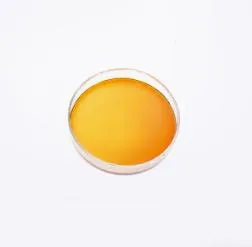
News
Jul . 28, 2025 10:35 Back to list
Polyaspartic Acid in Agriculture: A Revolutionary Solution for Sustainable Farming
Polyaspartic acid is emerging as a game-changer in modern agriculture, offering eco-friendly solutions to enhance crop productivity and soil health. This biodegradable polymer is gaining traction among farmers and wholesalers alike for its ability to improve nutrient uptake, reduce fertilizer waste, and promote sustainable farming practices.

Understanding Polyaspartic Acid and Its Structure
Polyaspartic acid is a water-soluble, biodegradable polymer derived from the polymerization of artistic acid. Its unique structure features repeating units of aspartame, forming a chain with carbolic groups that ch elate essential nutrients like nitrogen, phosphorus, and potassium. This molecular design allows it to bind with soil nutrients, preventing leaching and ensuring prolonged availability to plants.The versatility of polyaspartic acid lies in its ability to function as a soil conditioner, fertilizer enhancer, and growth stimulant. Unlike synthetic polymers, it decomposes naturally, leaving no harmful residues. Companies like Bayer, Sigma, and others have developed specialized formulations, including polyaspartic acid amine, to cater to diverse agricultural needs.
Benefits of Polyaspartic Acid in Crop Production
The application of polyaspartic acid in agriculture offers numerous advantages. It enhances nutrient efficiency by reducing fertilizer runoff, a common issue in conventional farming. By ch elating micro nutrients, it ensures plants receive a steady supply of essential elements, leading to healthier growth and higher yields.Moreover, polyaspartic acid improves soil structure by promoting microbial activity and water retention. This is particularly beneficial in arid regions where soil degradation is a pressing concern. Farmers using this polymer report reduced input costs and improved crop resilience against environmental stressors. Wholesalers should take note of these benefits to market the product effectively.Additionally, participatory acid's eco-friendly nature makes it an attractive option for sustainable agriculture. It biodegrades naturally, minimizing environmental impact compared to synthetic fertilizers. This aligns well with the growing consumer demand for environmentally conscious farming practices. Furthermore, its ability to enhance soil health over time contributes to long-term soil fertility and reduces the need for intensive tillage, thereby preserving soil structure and reducing erosion. By incorporating participatory acid into their agricultural practices, farmers can not only boost productivity but also contribute to the preservation of natural resources.
Leading Manufacturers and Product Variations Of Polyaspartic Acid
Several renowned companies, including Bayer and Sigma, have invested in research to optimize polyaspartic acid for agricultural use. Bayer’s polyaspartic acid formulations are tailored for large-scale farming, while Sigma’s polyaspartic acid is widely used in laboratory and field trials.The polyaspartic acid amine variant is particularly notable for its enhanced nitrogen-binding capacity, making it ideal for nitrogen-intensive crops like corn and wheat. Wholesalers looking to expand their product line should consider stocking these high-demand variants to meet the growing needs of progressive farmers.Moreover, the environmental benefits of participatory acid cannot be overlooked. It is biodegradable and has minimal impact on soil and water resources, aligning well with the sustainable farming practices that are increasingly being adopted worldwide. Companies like Bayer and Sigma are continuously innovating to enhance the efficiency and eco-friendly of these participatory acid formulations, ensuring they remain at the forefront of agricultural technology. As such, wholesalers can expect to see ongoing advancements in this field, providing them with a steady stream of innovative products to offer their customers.
Why Wholesalers Should Promote Polyaspartic Acid
The demand for sustainable agricultural inputs is rising, and polyaspartic acid is at the forefront of this shift. Wholesalers play a pivotal role in bridging the gap between manufacturers and farmers. By promoting this product, they can cater to Eco-conscious farmers seeking innovative solutions to boost productivity while minimizing environmental impact.Our company offers premium-quality polyaspartic acid products at competitive prices. With customization formulations and bulk-order discounts, we ensure wholesalers receive the best value. Partner with us to supply farmers with this cutting-edge solution and contribute to a greener future.
Polyaspartic Acid FAQs
What crops benefit the most from polyaspartic acid?
Polyaspartic acid is beneficial for a wide range of crops, including cereals, vegetables, and fruits. Nitrogen-loving plants like corn, wheat, and rice show significant yield improvements due to enhanced nutrient retention.
How does polyaspartic acid compare to traditional fertilizers?
Unlike traditional fertilizers, polyaspartic acid reduces nutrient loss through leaching and civilization. It acts as a carrier, ensuring slow and steady nutrient release, which improves efficiency and reduces the need for frequent applications.
Is polyaspartic acid safe for the environment?
Yes, polyaspartic acid is biodegradable and non-toxic, making it an eco-friendly alternative to synthetic polymers. It breaks down naturally without harming soil macrobiotic or water systems.
Can polyaspartic acid be used in organic farming?
While regulations vary by region, polyaspartic acid is generally considered suitable for organic farming due to its natural derivation and biodegradability. Farmers should verify compliance with local organic certification standards.
Where can wholesalers source high-quality polyaspartic acid?
Wholesalers can partner with our company to access premium polyaspartic acid products, including Bayer and Sigma variants. We offer bulk orders, competitive pricing, and reliable supply chains to meet market demands.In conclusion, polyaspartic acid is revolutionizing agriculture with its sustainable and efficient nutrient management capabilities. Wholesalers are urged to seize this opportunity by promoting and stocking this innovative product. Contact us today to place your order and join the movement toward greener farming practices!
-
Why Iminodisuccinic Acid Salts Are Revolutionizing Industrial Cleaning
NewsJul.28,2025
-
The Role of Polyaspartic Acid Salts in Sustainable Agriculture
NewsJul.28,2025
-
Polyaspartic Acid in Agriculture: A Revolutionary Solution for Sustainable Farming
NewsJul.28,2025
-
Iron Chelating Agents: Understanding Their Role in Treating Iron Overload Disorders
NewsJul.28,2025
-
Innovations in Gypsum retarder Retarders: From Chemical to Organic Solutions
NewsJul.28,2025
-
How Polyaspartic Acid Salts Are Replacing Toxic Industrial Chemicals
NewsJul.28,2025
